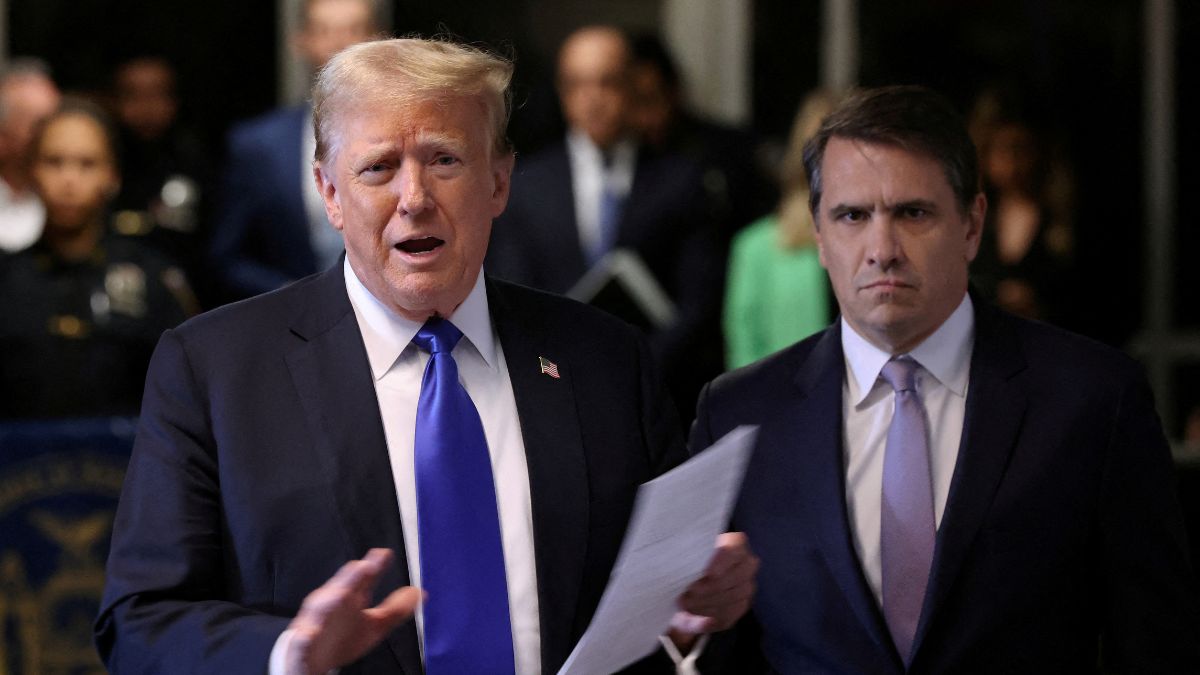On Friday, Judge Juan Merchan set the sentencing date for US President-elect Donald Trump in the Hush-money case for January 10. The date came as a surprise to Trump’s team since it is a little over a week before he is due to return to the White House. While the outcome of sentencing is not clear, judge Merchan ruled out the possibility of sending Trump to jail.
Merchan who presided over the case’s trial in New York, denied the president-elect’s motion to dismiss the case due to his win in the 2024 US Presidential Elections. He noted that Trump is expected to appear for sentencing in person or virtually at his convenience.
In an 18-page ruling, Merchan also signalled that he does not intend to send Republican firebrand behind bars since prosecutors “concede they no longer view [it] as a practicable recommendation” in the light of Trump’s win in the November 5 poll. It is pertinent to note that a sentence of “unconditional discharge” means that no custody, monetary fine or probation, and is currently seen as “the most viable solution” in the case.
The sentencing will still remain significant
While Merchan downplayed the sentencing, it would still provide a high-profile reminder of Trump’s wrongdoings before he swears in as the 47th President of the United States. This will be the first time a president will assume the Oval Office with a criminal record. Trump still has an option to appeal against the ruling and delay his sentencing.
In May last year, Trump was convicted of falsifying business records. The case involved an alleged scheme to hide a hush money payment to the adult film performer Stormy Daniels in the last weeks of Trump’s first campaign in 2016. The payments were made to hide Daniel’s claims that she had an affair with Trump.
The president-elect pleaded not guilty in the case and claimed, without evidence, that he was a victim of a “political witchhunt”. While reacting to Merchan’s recent ruling, Trump’s spokesperson, Steven Cheung, said in a Friday statement: “This lawless case should have never been brought and the Constitution demands that it be immediately dismissed."
“President Trump must be allowed to continue the Presidential Transition process and to execute the vital duties of the presidency, unobstructed by the remains of this or any remnants of the witch hunts. There should be no sentencing, and President Trump will continue fighting against these hoaxes until they are all dead," he added.
Impact Shorts
More ShortsThe sentencing date came after several postponements
It is important to note that Trump was initially scheduled to be sentenced on 26 November but Merchan pushed back the date indefinitely after he won the race against US Vice President Kamala Harris. The postponement allowed both the prosecution and the defendants to weigh in on the future of the case.
Trump’s lawyers continued to urge Merchan to toss out the case altogether. They argued that the case posed unconstitutional “disruptions” to the incoming president’s ability to run the country. Merchan rejected the argument, writing that setting aside the jury’s verdict would “undermine the Rule of Law in immeasurable ways”.
The judge also concluded that the Supreme Court’s ruling regarding presidential immunity does not shield Trump in this case. “Accordingly, a President-elect is not permitted to avail himself of the protections afforded to the individual occupying that Office,” the judge wrote. He said that he found “no legal impediment to sentencing” Trump and it was “incumbent” on him to sentence the president-elect prior to his swearing which is scheduled to take place on January 20. “Only by bringing finality to this matter” will the interests of justice be served, Merchant wrote.
Amid the whole debate, prosecutors with Manhattan District Attorney Alvin Bragg’s office had suggested several options for Merchan. They asked the judge to delay the sentencing until Trump, 78, leaves the White House in 2029, or guaranteeing a sentence that would not involve prison time.
In usual circumstances, falsifying business records is punishable by up to four years in prison but incarceration is not required. Even before Trump won the race, several legal experts argued that it was unlikely that he would be locked up due to his lack of a criminal history and advanced age.
With inputs from agencies.


)

)
)
)
)
)
)
)
)



